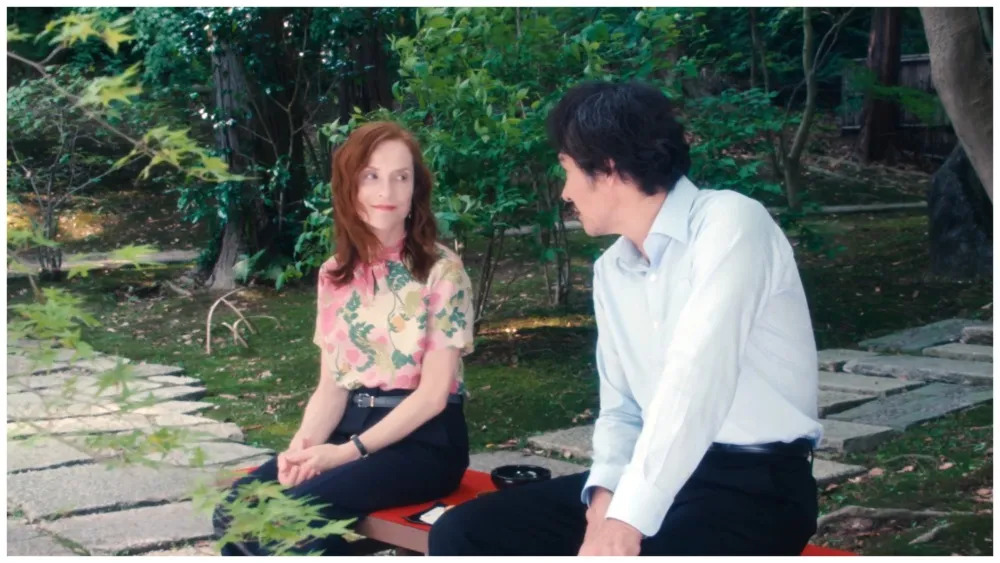The screen slid slowly from darkness into a scene, with quiet sounds of cars and wind blowing through trees. It ended very similarly, with photos of Japanese towns and cities; quiet scenery that said more than words. Here director Élise Girard showed how out of loss, loneliness and depression, love could be born in Sidonie in Japan (2023), screening at the French Film Festival.
Sidonie (Isabelle Huppert), a lapsed French author, travels to Japan for a book tour about her first book, which she wrote many years before. She is there only due to the persistence of her editor and translator, Kenzo (Tsuyoshi Ihara). She is haunted by the ghost of her husband (August Diehl), who died in a car crash years earlier. The exquisite Japanese scenery is viewed through a conspicuously French lens: a longing for what was strange and unfamiliar, beautiful and haunting. The “country of ghosts” is romanticised as a faraway paradise where people could unlock the secrets and sorrows festering inside them.
The interaction between French and Japanese culture and language was fascinating, given how diametrically opposing they are. Much like Netflix’s Emily In Paris, Japan was moulded to suit Sidonie’s linguistic capabilities, albeit with a little more authenticity. One of my favourite scenes featured Sidonie speaking to a Japanese receptionist. Sidonie spoke quickly in French, then slowly enunciated her syllables so the receptionist would understand. The receptionist, who only spoke Japanese, slowly emphasised her own words, which was unfortunate because Sidonie was equally monolingual. It was a clever satire of interactions between tourists who presume everyone speaks their language.
Likewise, the depiction of interpreters throughout the movie made it seem much more realistic, and served to emphasise how out-of-place Sidonie was, linguistically and culturally. On arriving in Hanada Airport she stuck her hand out to the first Japanese person she met, who looked at it bemusedly and then bowed at her. Her interpreter, Kenzo, regularly took her bag to carry himself. This made her confused at first, but she eventually wore down and handed the bag to him before he could take it off her shoulder.
Sidonie’s character arc was a fascinating psychological insight into love and grief. Her husband Antoine continuously appeared before her, only visible to her and only because she “still had things to say to him”. The cinematography was clever in how it depicted a ghost: Antoine was clearly filmed in a different location, under conspicuously artificial lighting, which was then grafted onto a scene where Huppert was acting alone. This made him seem a little eerie, but never quite malicious. The ‘haunting’ of ghosts was treated as an affliction similar to nostalgia, which simply manifested in the physical appearance of loved ones. Sidonie herself had intense survivor’s guilt, particularly as she had survived another car crash when she was younger which had killed both of her parents. The film traced her learning to confront her loss and to move on, which intertwined with Kenzo’s arc.
Kenzo was trying to move on from a divorce, and these two people who had loved so deeply and for so long found the outlet of their grief in each other. This made the development of their relationship seem as easy and natural as flowing water, and realised the film as poignant and lovely.
Sidonie in Japan (2023) played at the 2024 Alliance Française French Film Festival.





